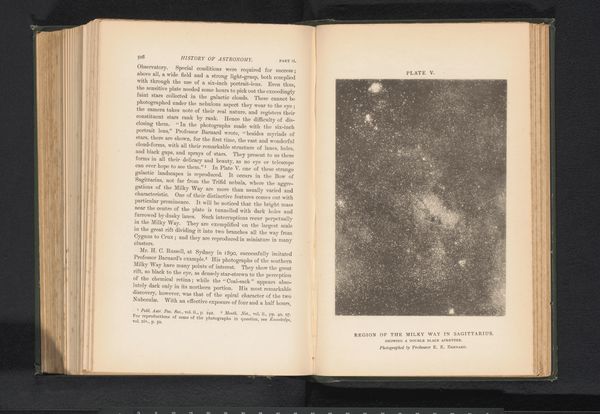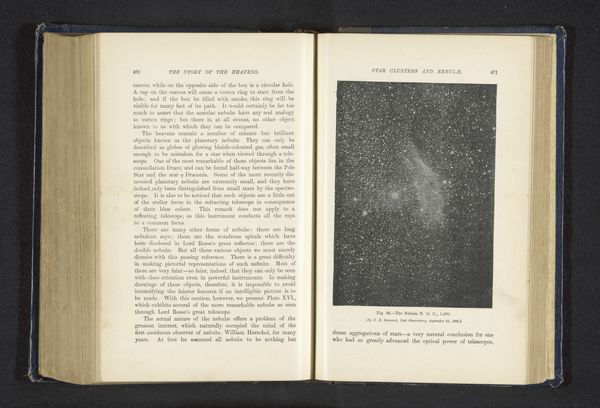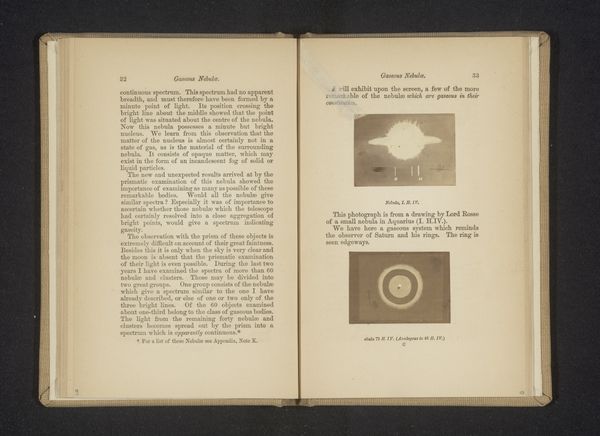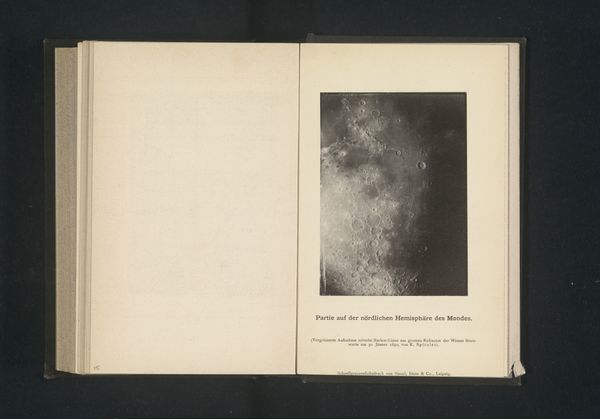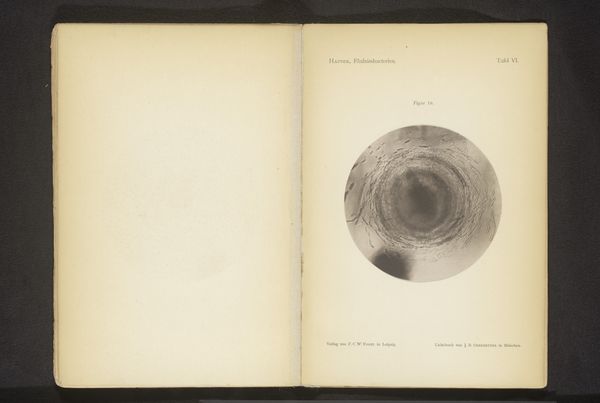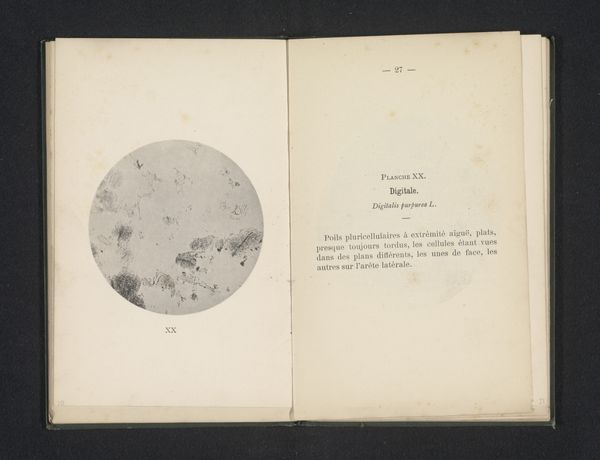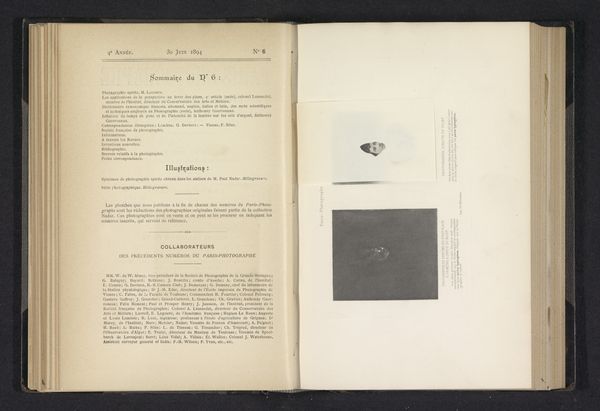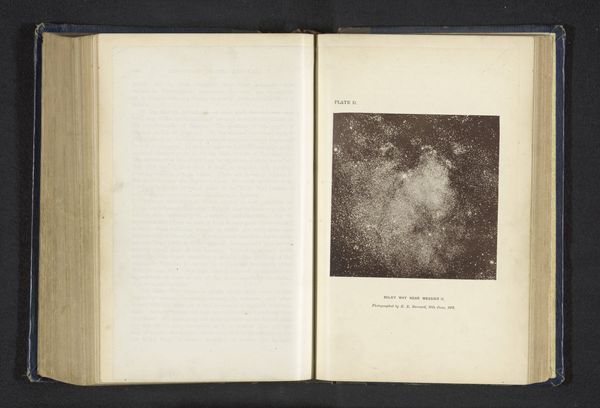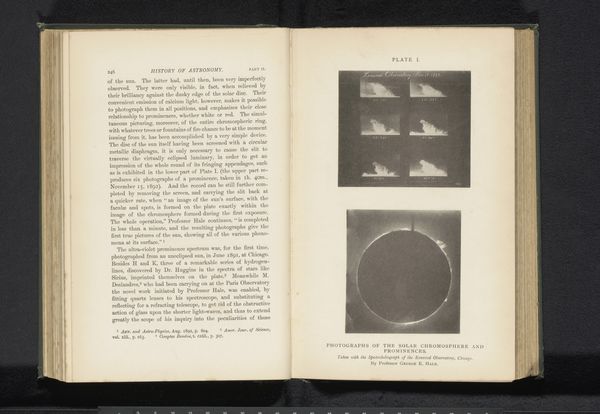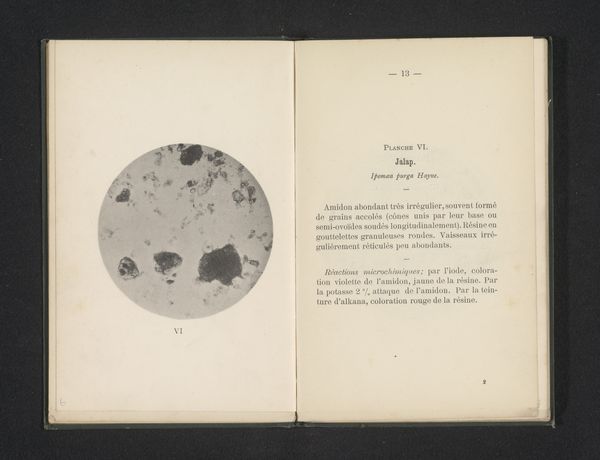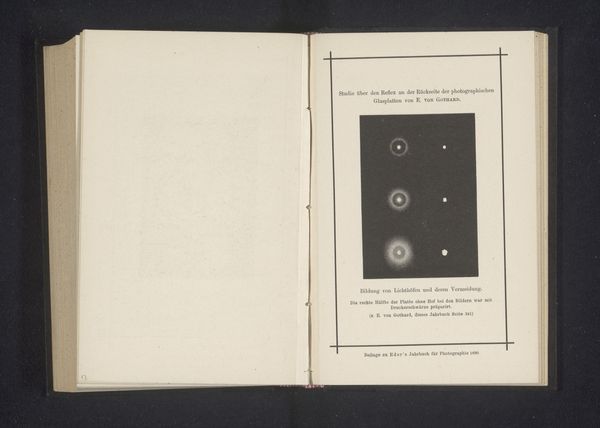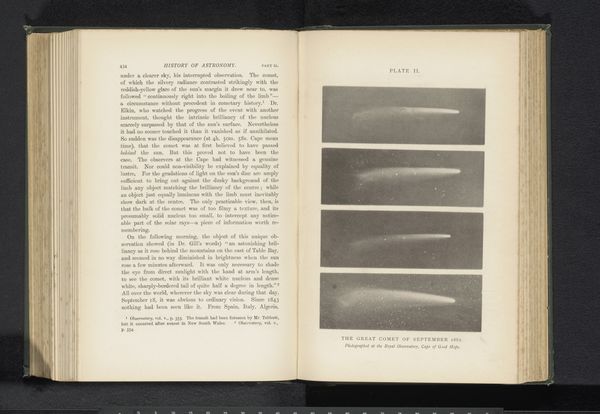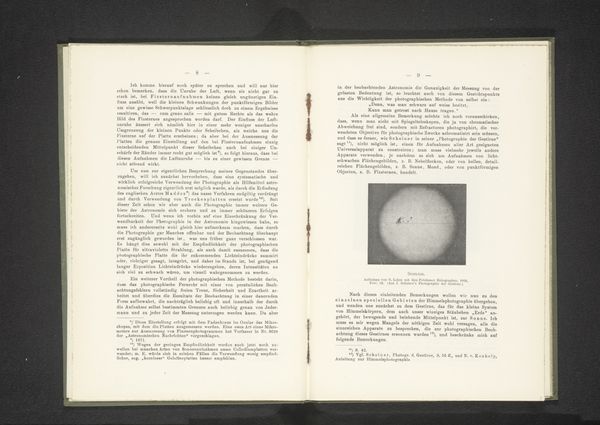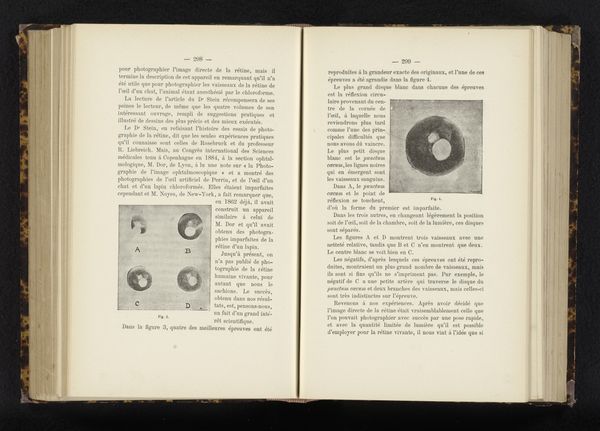
print, photography
# print
#
photography
#
coloured pencil
Dimensions: height 54 mm, width 56 mm
Copyright: Rijks Museum: Open Domain
Curator: Here we see a page from a book that contains a print of E. Demole's photograph "Zonsverduistering op 16 mei 1900", predating 1900. The photograph captures a solar eclipse. What is your initial reaction? Editor: It feels spectral, almost eerie. That faint crescent of light surrounded by so much swirling darkness… there's an undeniably dramatic quality to it. Curator: Absolutely. It’s a reminder that this image comes from a period of heightened interest in astronomical phenomena, fueled by both scientific advancement and perhaps a lingering sense of mystery about the cosmos. Photography played a crucial role in documenting these events, making them accessible to a wider public. How do you think this access reshaped cultural understanding? Editor: Well, images like this helped demystify astronomical events while simultaneously sparking the public imagination. You know, it becomes less an omen and more an event to be documented and discussed. Curator: Precisely. And consider Demole's likely audience: the late 19th-century public, hungry for knowledge but still navigating the transition from a world steeped in myth to one grounded in scientific explanation. A print like this allowed for shared experiences of cosmic wonders, but only for those with resources. How can we discuss access to this kind of media, the intersectional privilege required to see a book with photographic prints? Editor: It speaks volumes about who controlled not just the narrative but also the tangible experience of scientific discovery. So much science has built on existing, accessible privilege that allowed some to observe with the most advanced equipment, and now photograph astronomical phenomena and further build capital for their research by creating expensive keepsakes. This image is interesting also when reflecting on power structures within both scientific fields and the arts, too. Curator: I agree. It pushes us to reconsider the cultural authority embedded in seemingly objective scientific imagery, especially given who gets to both observe and interpret these images. The composition and light evoke feelings of fragility and awe. It becomes a reminder of our relative insignificance in the face of the cosmos, as much as a celebration of scientific understanding. Editor: Exactly. Looking at this piece now is to remember this eclipse in a wider story about power and privilege.
Comments
No comments
Be the first to comment and join the conversation on the ultimate creative platform.
